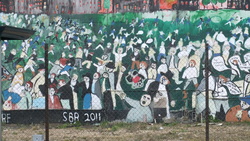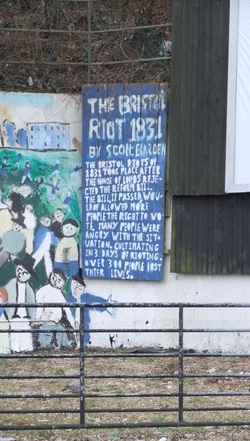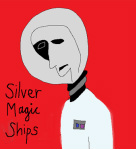
The first disturbance arose during a talk about MOOCs. This acronym stands for massive online open courses. Their proponents claim these to be the-next-big-thing in education. Old fashioned universities beware: soon they’ll be superseded by entirely online providers charging a fraction of the price and servicing hundreds of thousands of participants drawn from the four corners of the globe. This is all thanks to disruptive technologies: IT innovations that disturb the status quo as surely as music downloads have annihilated the high-street record store. Be that as it may, listening to a gorgeously slick gentleman from a posh US university preaching about disruption made me suspicious. Don’t be lulled into thinking that this particular brand of commotion is inherently exciting, radical or open. Because that would be to belie the imperialistic ambitions of many of the organisations that lurk beneath the mantle of disruptive technology.
The next day also proved to be cheerfully disruptive. On this occasion the challenge to the natural order occurred towards the close of a highly civilized seminar hosted by the Arts and Humanities Research Council. Representatives of groups funded by the AHRC’s various knowledge exchange schemes were invited to meet in Bristol and share ideas. One participant happened to mention how her scheme had helped facilitate “disruptive thinking”.
This in turn got me thinking disruptively. To what extent do funders tolerate such behaviour? Moreover, “disruptive thinking” is promoted because it can lead to failure. But it would take a bold person to declare in an end-of-project-report that their research was brilliantly abortive, that they didn’t bother doing what they had promised and had in fact consciously subverted the aims of the funding organisation: all in the name of disruptive thinking.
Would such disruptions be welcome? Would they lead to renewed investment from a grateful funding body? Bear in mind that these sources of money must also be accountable to a board of trustees, some government department or the largess of a tax avoiding business.
I pondered these things whilst making my way to Bristol Temple Meads to catch my train back to snowy Nottingham. Suddenly I looked up and – to my surprise – found myself in the midst of a ferocious riot. Sword-wielding soldiers on horseback were pitching into a crowd of angry protestors. Such was the ferocity of this incident that I was mighty pleased to have turned up after it had started. Precisely 182 years after.

This disturbance has a resonance in the city to which I was headed. In Nottingham similar acts of insurrection also took place in 1831. On 10th October a crowd of residents, frustrated by the lack of progress towards electoral reform, gathered in Market Square before heading up the hill to the site of the old Nottingham castle, then the home of the dukes of Newcastle. They burnt the mansion to the ground. It stayed that way for fifty years until the gutted shell was transformed into a municipal museum and art gallery.
The fullness of time has turned the disruptive events of 1831 into local histories. They are also part of a neat linear story of political change leading to universal suffrage.
But would the imperfect democracy enjoyed by Britons today have been achieved if some individuals weren’t prepared to disrupt the present order?
And wouldn’t it be ironic if these disruptive deeds were to one day become the subject matter of some not-for-profit (sic) MOOC or even a British knowledge exchange initiative?
Goodness, what a disruptive thought! The third one this week!






